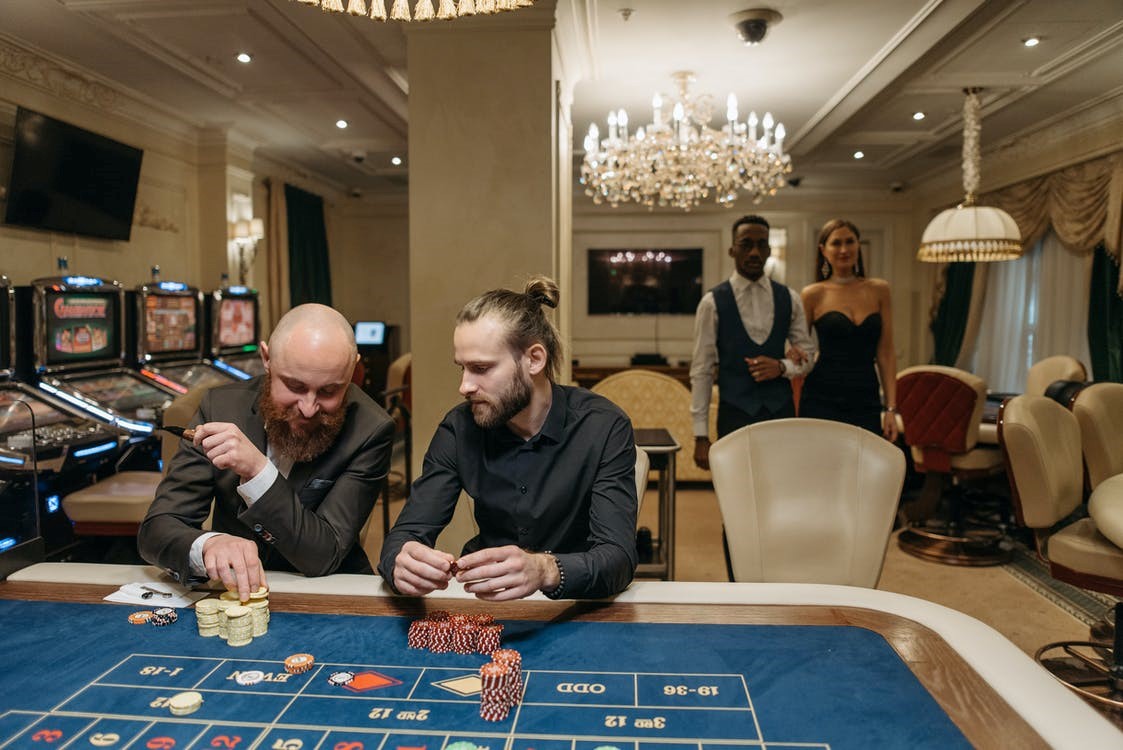
Casino entertainment have long been a staple in human culture, providing not just entertainment but a fascinating reflection of our dreams, wishes, and concerns. From the rotating wheels of a slot machine to the tactical play of poker, these games embody a variety of human feelings and incidents. At their core, casino games are not just a chance to earn cash; they are a snapshot of life itself, where danger and gain converge and fate can change in an moment.
As players convene around tables or sit in front of glowing machines, they take part in a tradition that transcends mere playing. These games reflect our innate desires for social interaction, excitement, and the search for fortune. They also unveil deeper truths about human nature, such as our relationship with fate and the thrill of risk. In exploring casino games, we reveal not only the rules of play but also the rich tapestry of the human experience, showcasing our intertwining narratives of hope and reality.
The Mind Behind Gambling
Gambling is deeply rooted in human psychology, tapping into various feelings and wants. The thrill of taking risks is a fundamental aspect that draws players in, whether the excitement of spinning a roulette wheel or the anticipation of drawing a winning card in poker. This rush of adrenaline is often compared to other forms of excitement, as the unpredictability of outcomes elicits a distinct psychological response. Gamblers often become captivated by the chance of striking it rich, leading to an irresistible draw toward gambling games.
Another, an essential component of the psychology behind gambling is the concept of optimism and ambition. Participants often indulge in dreams of financial freedom and the opulent lifestyle that can accompany winning. This hope fuels their continued participation in gambling, as it provides a sense of purpose and the conviction that a transformative win could be just one wager away. The story of beating the odds and finding success resonates with many, strengthening their dedication to play and involve themselves with these games.
Lastly, social dynamics play a significant role in gambling psychology. Casino environments are designed to promote social interaction, where players gather to share the experience of wins and losses. This shared aspect not only amplifies enjoyment but also influences behavior, as individuals often mimic the actions of others in their vicinity. The social validation found in shared excitement can magnify the emotional experience, making casino games a reflection of not just personal desires but also shared involvement within the gambling community.
## The Dual Nature of Risk and Reward
Casino games embody the delicate balance between danger and gain that resonates deeply with human nature. The thrill of placing a bet is often accompanied by a rush of adrenaline, as players are confronted with the possibility of winning big, yet cognizant of the possibility to lose. This twofold experience reflects a core aspect of life: the decisions we face often come with inherent risks, and the quest for benefit can drive us to make risky moves we might not normally consider. meilleur casino en ligne In this way, gambling activities mirror real-world choices, enticing players to gamble not just their capital, but also their hopes.
The allure of big prizes and payouts fuels a sense of optimism, motivating gamblers to dream of a brighter future that could manifest from a fortunate turn of the roulette or dealing of a hand. This optimism can compel individuals to engage in more daring actions, encouraging them to push their boundaries in search of financial gain. However, just as in life, the consequences of these decisions can lead to both victory and loss. The stories of both big winners and those who have suffered everything at the casino demonstrate the chaotic nature of chance and its consequential repercussions on our futures.
Ultimately, the experience of engaging with gambling activities serves as a strong reminder of the nature of humanity. Every game played is filled with the tension of risk, as players weigh the gains against the dangers. This dynamic not only highlights the excitement that comes with betting but also unveils the weaknesses that come with the longing for more. As we navigate the complexities of choice and results in both the gambling world and in life, we find that the search for benefit shapes our character and journeys in profound ways.
Culture and Isolation in Casino Culture
Casino environment is a unique blend of communal interaction and individual pursuit, reflecting the tensions of human experience. Gamblers often gather around games, experiencing in the excitement of the game, celebrating wins, and commiserating over losses. This communal aspect is vital, as it fosters a sense of community and camaraderie among varied groups of individuals. Regular visitors to casinos may build friendships and develop routines, turning the casino into a alternative home where they experience linked to a larger community of players.
However, the allure of casino activities can also lead to isolation. As individuals become engrossed in the thrill of playing, they may isolate from personal connections or neglect to engage with the environment outside the casino. For some, the search of a windfall can overshadow genuine connections, leading to loneliness. The experience of being among others yet experiencing solitary is not rare, as the focus shifts from shared enjoyment to the private concerns of each individual’s journey.
This interplay of community and isolation creates a rich tapestry that defines gaming atmosphere. It highlights the complexity of human interactions, where joy and sorrow exist together. Casinos serve as both a refuge for social interaction and a platform for individual challenges, demonstrating how intimately connected our yearning for connection and the individual quest for fortune can be. In navigating this landscape, players confront their own narratives—seeking both the thrill of the wager and the fellowship of fellow players, eventually reflecting the broader spectrum of human experience.
